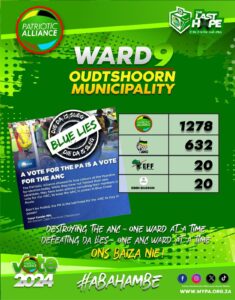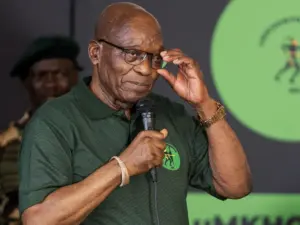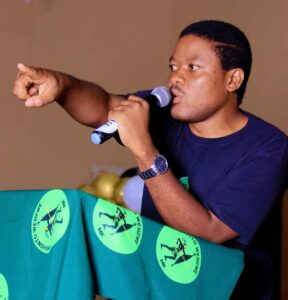By: Dr. Clyde N.S Ramalaine
A few weeks ago, Bishop Carlton D. Pearson, a famed psalmist, preacher, and self-confessed former protégé of Evangelist Oral Roberts, and the founder of the 90’s Azusa Conference, passed away and was laid to rest. Pearson originally from San Diego, rose to prominence in the Pentecostal Church of God in Christ stable, and would in 1981 form his own congregation under the name Higher Dimensions of Evangelistic Center. By the 90’s HDEC would draw crowds of over 6000 people. During the inaugural evening of his yearly AZUSA Conference in 1996, Pearson received ordination as a bishop. Subsequently, on the opening night of AZUSA ’97, he was consecrated.
Allow me to extend sincere condolences and sympathies to Pearson’s family and close friends—those who shared a close connection with him throughout the various stages, and pauses of his life. Additionally, I acknowledge that his death has left me saddened, not because I was a follower of Pearson as a theological scholar but for his unique renditions of common traditional hymns that defined the generation I belong to. Thus, my confession: I followed his music prowess, as with most well-known gospel artists, and never considered him a serious theologian.
Our paths crossed momentarily in 1995 at the Installation of Andrae E. Crouch, a mutual longstanding friend and brother, as the pastor of Christ Memorial Church located on Vaughan Street, Pacoima, Southern California. Bishops Pearson and Roderick R. Caesar [a good friend from Queens, New York] served as programme directors. On this occasion requested by Crouch, I was privileged to deliver congratulatory remarks, representing the African continent’s clergy.
My enduring sadness stems from what appears Brother Pearson’s reluctance, if not wilful obduracy, to publicly re-evaluate his new beliefs. He clung to his evolving views, thoughts, and opinions, defining himself as ‘wondering’ and ‘wandering,’ even when pressed.
With Pearson’s passing, some clergy such as Bishop William Murphy have sought to blame and accuse the Church of mistreating him. However, it is essential to recognize that Pearson had numerous opportunities to recant his new beliefs, yet he stubbornly clung to his new doctrines. Here, I share my views, providing my interpretation of Pearson’s newly espoused doctrine, commonly known as the ‘Gospel of Inclusion’, with the hope of aiding further discourse.
It is perhaps important to upfront state what this comment is not. This is not an ad hominem attack on Carlton Pearson from a holier-than-thou position. I simply have no reason, interest, or intention to vilify or denigrate another, especially the dead. This musing, thus at a principle level, attempts to address those who arrogate a right to willy-nilly accuse the church of having treated Pearson unfairly.
In this commentary, which comes anchored in four aspects: 1. An overview of the advanced Gospel of Inclusion and its anchoring in Universalism, 2. The role of the Oral Roberts Prophecy, and 3. Scriptural Premise for Ex-Communication of Heretics as a practice supported by the Sacred Text, and 4. Pearson’s own admission of his status as a ‘wondering’ and ‘wandering’ soul. This article, thus, in synopsis of critique, congregates my understanding of the gospel of inclusion, postulates the role of the Oral Roberts’ prophetic utterance and its potential role, and engages Pearson’s self-admission of a ‘wondering’ and ‘wandering’ soul in theological contemplation. I conclude by citing reasons why the claims of those who accuse the church of ill-treatment of Pearson remain misplaced, emotional, cheap in blackmailing, and vexatious, for wanting to afford Pearson arguably unique space in forced exceptionalism.
The aim is to shed light on the complexities surrounding Pearson’s theological journey and the Church’s role in responding to such divergent beliefs.
What then is the anchor tenets of the gospel of inclusion?
The theological framework of inclusion, as expounded by Carlton Pearson and adherents, is marked by several doctrinal deviations:
- The doctrine posits that the sacrificial death and subsequent resurrection of Jesus Christ serve as an all-encompassing atonement, thereby securing eternal salvation for the entirety of humanity, obviating the necessity for repentance.
- In accordance with the gospel of inclusion, the attainment of salvation is asserted to be unconditionally bestowed, eschewing any requisite faith in Jesus Christ as the redemptive mechanism for humanity’s accrued sins.
- The theological tenet of inclusion posits a predestined celestial existence for all of humanity, irrespective of their cognizance or acknowledgment of this predetermined destiny.
- Furthermore, the doctrine maintains that irrespective of religious affiliations, the entirety of humanity is destined for eternal residence in heaven.
- Lastly, within the paradigm of inclusion, it is asserted that only those individuals who purposefully and consciously reject the benevolence of God, subsequent to having experienced the manifestations of His grace, will face eternal separation from Him.
The theological framework of inclusion, as propounded by Pearson and his adherents, introduces inherent challenges to traditional Christian doctrines. One primary area of contention lies in the assertion that the sacrificial act of Jesus Christ on the cross universally secures eternal salvation for all of humanity, eliminating the imperative for individual repentance. This departure from the foundational Christian concept of personal responsibility and repentance undermines the traditional emphasis on the transformative nature of faith and redemption. Additionally, the unconditional nature of salvation, devoid of a requisite faith in Jesus Christ, diverges sharply from orthodox Christian teachings, challenging the core principle of faith as an essential component of salvation.
The doctrine’s claim of a predetermined celestial destiny for all, regardless of awareness or acknowledgment, contradicts the traditional emphasis on free will and personal choice in matters of faith. Moreover, the inclusive stance that transcends religious affiliations challenges the exclusivity traditionally attributed to Christianity. Finally, the notion that only conscious rejection of divine grace leads to separation from God introduces complexities in reconciling this with traditional doctrines of judgment and accountability.
In essence, the theological framework of inclusion introduces a paradigm shift that challenges and deviates from the fundamental tenets of traditional Christian belief systems.
The Oral Roberts’ Prophecy and its Plausible Role in Pearson’s Departure from His Original Held Beliefs
It appears that Pearson’s belief system is heavily influenced by personal experiences, convictions, and ideas, possibly fueled by a prophetic utterance from his mentor Oral Roberts regarding a ‘black man’ leading the next significant movement. Notably, Pentecostalism in the USA already had such a figure before Oral Roberts’ prophecy, in the form of William Seymour, the one-eyed black man associated with the Azusa Revival—the same from whom Pearson borrowed his Azusa Conference. Perhaps Pearson answered himself with his own assertion of him as a ‘wondering’ and ‘wandering’ mind.
The relationship between Oral Roberts and Carlton D. Pearson was one marked by mentorship and spiritual guidance. As a self-confessed former protege, Pearson acknowledged Oral Roberts as a significant influence in his life and ministry. Oral Roberts, an esteemed evangelist and charismatic Christian figure, provided Pearson with foundational mentorship that extended beyond theological instruction. The mentor-mentee dynamic was characterized by a transmission of spiritual values, ministry principles, and a shared passion for evangelical outreach. Roberts played a crucial role in shaping Pearson’s early religious journey, and the impact of this mentorship was evident in Pearson’s subsequent roles as a psalmist, preacher, and founder of the Azusa Conference.
For Carlton D. Pearson, avoiding disappointment in the eyes of his mentor, Oral Roberts, would have been of paramount importance. Roberts, a revered figure in the Christian community, had not only imparted spiritual guidance but had also prophesied a significant role for Pearson as a central figure in the next major Christian movement. The weight of this prophetic affirmation, coupled with deep mentorship, likely fostered a sense of responsibility and duty within Pearson to fulfill the expectations set by his mentor. Disappointing Roberts would not only signify a personal letdown but could also be perceived as a failure to live up to a divinely inspired vision. The desire to honour the mentor-mentee relationship and uphold the prophetic declaration may have played a substantial role in Pearson’s reluctance to re-evaluate his evolving beliefs, as he sought to align himself with the narrative prescribed by his esteemed mentor, Oral Roberts.
Thus, the prophecy from Oral Roberts, predicting that a black man, specifically Carlton D. Pearson, would lead the next major Christian movement, likely played a pivotal role in influencing Pearson’s departure from his original beliefs.
Firstly, the weight of such a significant prophetic utterance could have fuelled Pearson’s sense of divine calling and destiny, potentially leading him to prioritize fulfilling the prophecy over steadfast adherence to his original convictions.
Secondly, the ambitious nature of the prophecy might have kindled Pearson’s personal aspirations and desire for prominence, tempting him to shape his beliefs to align with the predicted role he was to play.
Thirdly, the prophecy may have inadvertently created a narrative that elevated Pearson’s status within the Christian community, fostering a mindset that prioritized personal recognition over doctrinal fidelity. The convergence of divine prophecy and personal ambition could have generated an environment where Pearson’s departure from his original beliefs became not only conceivable but, in his eyes, perhaps even justified.
The Challenge of Pearson’s ‘Wondering’ and ‘Wandering’ Meandering Theology.
Bishop Carlton D. Pearson’s self-admission of ‘wondering’ and ‘wandering’ encapsulates the profound uncertainty embedded in his newfound faith. As he navigated the uncharted waters of the ‘Gospel of Inclusion,’ Pearson’s intellectual and spiritual journey seemed marked by a perpetual state of questioning and exploration. His hesitancy to firmly anchor himself in a doctrinal foundation reflected an ongoing search for theological coherence. Pearson grappled with the implications of his beliefs, often appearing adrift in the sea of theological ambiguity. This inherent ‘wondering’ reflected not only his internal struggles but also hinted at the unresolved tensions within the fabric of his theological convictions.
Moreover, Pearson’s ‘wandering’ denoted a continuous intellectual journey characterized by a lack of steadfast adherence to a particular set of beliefs. His theological landscape appeared as a vast terrain where he roamed freely, unencumbered by the constraints of doctrinal rigidity in which he found means and reason to include all. This ‘wandering,’ despite Pearson’s gifted and celebrated oratory and eloquence, could never hide the inability to present a systematic defense of his new beliefs. Despite numerous sermons, talks, and interviews, Pearson’s articulation of the ‘Gospel of Inclusion’ remained according to his own admission and an exploration of evolutionary knowledge, undeniably elusive on the core ingredients and, at times glaring in contradictions. The absence of a clear theological framework demonstrated not only his personal uncertainty but also posed challenges for those attempting to comprehend and engage with his evolving new knowledge. In embracing the descriptors of ‘wondering’ and ‘wandering,’ Pearson candidly acknowledged the fluidity and uncertainty that defined his theological odyssey.
Scriptural Premise for Excommunication:
I deliberately will not cite many scriptures to make the central point; hence, I advance these views as commentary. The concept of excommunication and addressing those who preach another gospel is found in the Bible, specifically in the New Testament. One key passage that addresses this issue is Galatians 1:8-9 (New International Version):
“But even if we or an angel from heaven should preach a gospel other than the one we preached to you, let them be under God’s curse! As we have already said, so now I say again: If anybody is preaching to you a gospel other than what you accepted, let them be under God’s curse!”
This passage emphasizes the seriousness of preaching a different gospel and suggests a strong response, indicating that such individuals should be considered under God’s curse. While the term “excommunication” may not be explicitly used here, the principle of separating from those who preach a distorted or false gospel is implied. Additionally, 2 John 1:10-11 (New International Version) provides guidance on dealing with those who bring a different teaching:
“If anyone comes to you and does not bring this teaching, do not take them into your house or welcome them. Anyone who welcomes them shares in their wicked work.”
These verses emphasize the importance of not endorsing or supporting those who promote teachings contrary to the true gospel. It’s crucial to note that the specific practices of excommunication may vary among Christian denominations, and the decision to excommunicate someone is often made by the leadership of a particular church or religious community based on their interpretation of biblical principles.
Concluding, one dares to state it is inescapable that Pearson’s newfound, little more than over two decades of theology, however, defined or cast, remains problematic for true Christ Believers who value the Sacred Text as more than a historical record but the infallible and inerrant Word of God.
- Firstly, Bishop Carlton D. Pearson’s ‘Gospel of Inclusion’ is not aligned with the traditional understanding of the Gospel.
- Secondly, Brother Pearson unto the last days of a demising sickbed did not regard the Word of God he once preached and sang as inherently God’s Word. He is on record to have stated that anyone claiming the Bible as inerrant and infallible has not studied it. This perspective sheds light on Pearson’s stance regarding the Sacred Text.
- Thirdly, Pearson’s ‘Gospel of Inclusion’ is based on the notion that inclusion necessitates acceptance of elements contrary and incongruent to the Sacred Text’s teachings.
- Fourthly, Pearson would, in contradiction to his new knowledge and faith persuasion, continue to claim himself Pentecostal essentially out of a history of 50 years of association even when, despite him having departed from the traditional Pentecostal faith persuasion. This confirms again the uncertainty of his persuasion while he was seeking to convince others of how right he was in his newfound doctrine.
- In the fifth instance, Pearson acknowledges that his new thinking emerged during his mayoral campaign attempt for Tulsa, Oklahoma. His reflection on the fate of a Muslim financial supporter’s deceased father, contemplating how a good person could be condemned to hell, became a catalyst for his doctrinal shift.
- In the sixth instance, Pearson somehow attempted to capitalize on the moral weaknesses of Baptist and Pentecostal preachers to disqualify them from having an opinion on the error of his newfound beliefs. These sinful actions by preachers rightly ought to be condemned, regardless as to who is guilty of such, yet this has no bearing on the truthfulness of the Sacred Text, and the essence of the gospel he rejected for his new consciousness. Unfortunately, Pearson’s popular in some circles, but a half-cooked concoction of less systematic, dependable, and defensible belief systems that he proudly if not blasphemously labelled a ‘gospel of inclusion’, does not present Jesus Christ as the ONLY door, It does not place any demand on lifestyle change as impacted by Jesus Christ in the act of Salvation.
- In the seventh instance, listening to Pearson’s numerous sermons, talks, and interviews as it relates to his new theology, it became apparent that Pearson himself was not certain and could not, as a scholar, defend his new doctrinal stance in a consistent manner, since he readily admitted he was still searching. He appeared searching and not finding hence he considered himself ‘wondering’ and ‘wandering’.
- Lastly Those in the church circles who feel guilty for not having done enough for him cannot attempt to let Pearson escape the consequence of his choices blaming the church as having treated Pearson wrongly.
Those who believe Carlton D. Pearson is owed recognition of a special kind by the entire Church perhaps miss the point as to what the Church’s conduct ought to be towards heretics. From the first public statement of Carlton Pearson on his new thinking, church leaders across multiple platforms engaged him. These interactions did not all assume a uniform structure and identity yet none can deny these took place. When these attempts failed, what was left for his colleagues and those of the faith to do but excommunicate him as a heretic. Pearson to his death bemoaned how he was treated, almost as if he expected different treatment in the face of his insistence not to heed sound advice. I, however, must also hasten to add, Pearson did not appear to be vengeful in his commentary or articulations on such treatment.
It is crucial not to attribute Pearson’s choices and beliefs to the entire Church. Pearson, from his new conversion over 20 years ago, thus to the final days of his unfortunate sickbed, remains a heretic, disowning the Bible in identity as inerrant, infallible, and God’s Word. Despite ample opportunities to rectify his beliefs. It appeared Pearson either intentionally or unintentionally prioritised his personal ego and the Oral Robert’s prophesied ‘black’ movement Pearson was to lead over wise counsel to amend his new ways.
Perhaps we have in Pearson the example of the precarious nature of what some consider ‘prophecies’, when these can shape personal ambition which ultimately may lead one to stray from the truth to adopt another ‘gospel’. It is fair to conclude that no one should blame the general church for Pearson’s conscious choices. If personal friends and family forsook him, that warrants engaging on a different platform, Pearson was owed nothing he did not receive as was due. Often when those who advance Pearson deserving better treatment are raised, the claim is made cognizant of the role of Pearson in the public reality of a then obscure and unknown West Virgina-based T. D. Jakes’s elevation. The Potter’s s House Bishop T. D Jakes, arguably the signpost of television black-preacher success in the 21st Century is on record to have long paid deserving respect for Bishop Carlton Pearson’s role in his elevation at a particular juncture.
Accusing the Church for Pearson’s choices is unjust, as Pearson did not consider the Bible any longer as the authoritative, inerrant, and infallible Word of God as previously espoused.
Unfortunately, in his quest as a former Bible believer, Carlton Pearson resorts to the commonly accepted argument often referenced by non-Bible believers, notably the Nicene Conference of 386—a historical fact uncontested by true Christian scholars. This reliance is conveniently oblivious to the understanding that the Bible, considered by Christ Believers as the Sacred Text, is the inspired word of God for human beings to comprehend God’s nature through the experience and hands of man. The consensus acknowledges that the 66 books constituting the Canon were written by approximately 42-45 authors over a period of more than 1400 years, inspired to record divine revelations. Therefore, my standard counter-argument against the notion of elevating Constantine as having produced the Canon in finality is intentionally misplaced, if not a reductionist argument.
It is commonly established that the Bible in 66 books did not miraculously fall from the sky; furthermore, it has no claim of a singular author. In fact, the argument of a single author simply does not exist. Instead, it details a compilation and comprises a multitude of authors attesting to a Sovereign God’s interaction with and through fallible man, documenting God’s self-revelation with and for humanity.
Consequently, it is not problematic to consider that a fallible Constantine, in his role through the staging of such a Nicene conference, contributed to the preservation of what we now recognize as the inerrant and infallible Word of God, as directed by a Sovereign God who presides over all things. Psalms 24:1 irrevocably declares: “The earth is the Lord’s and the fullness thereof, the World and those who dwell in it”. My contention arises from the created tension of reducing the Bible to a mere product of a man in political power, Constantine, despite the unquestioned humanity of the Bible’s authors where sinlessness was not the qualification for recording.
God never excluded human beings from actively participating in recording His Word for man. Similarly, there is no reason to assume that God could not have utilized the Nicene Conference for this purpose, as God never excluded or felt threatened by man’s involvement in what we now recognize as the oral tradition, the law, prophets, wisdom literature, gospel, acts of the apostles, epistles, and the apocalyptic records—all intended by God in His foreknowledge to be ultimately preserved as the sacred text for humanity. This argument is really aimed at the aseity and sovereignty of God, a fundamental doctrine in our Theology.
When Pearson makes the statement that the Bible is not inerrant or infallible and the product of the Nicene conference, it confirms how far Pearson has wandered from what he was raised on and espoused in a previous epoch.
The confessing church of Jesus Christ in multiplicity of expressions thus owes Pearson nothing but to mourn that he allowed himself to fall from grace by departing from the truth he once espoused. Permit me to lean on the words of words of German Theologian Joachim Jeremias when he cautions his and future generations, ‘The Church must always believe what it always believed.’
I wish I could say, “Rest in peace, Brother Pearson,” yet I hold onto the hope that before he gave up the ghost, he cried out in repentance.









I would argue that someone played a significant role in producing a thoughtful post. Having just visited your website for the first time, I’m astonished at the sheer volume of research you performed to create this specific piece. Excellent effort.